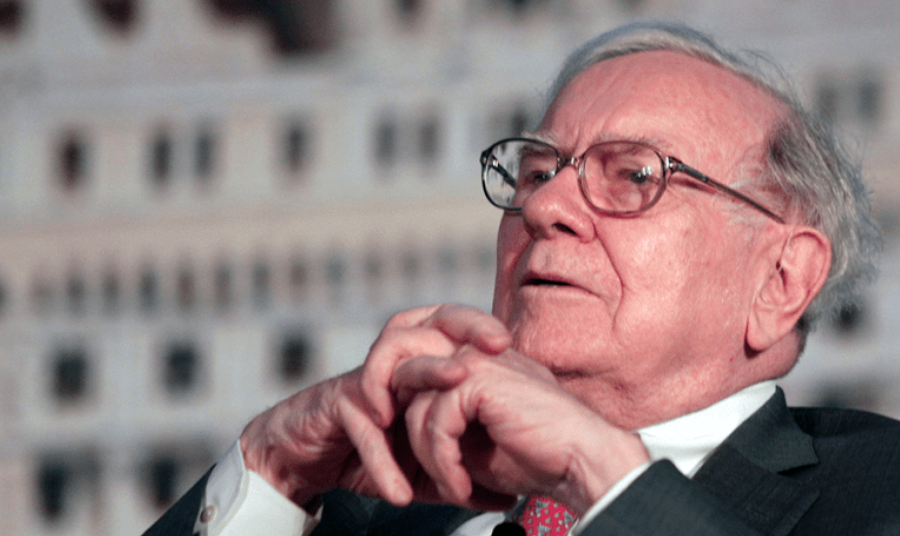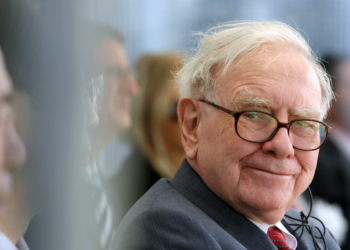Shareholders in Nigeria are quite used to expecting two types of returns from companies. Dividends (including script) and Capital Appreciation. However, a more reliable method may well be the suspension of dividends and reliance on pure capital appreciation -the Sell Off approach.
No other but Warren Buffet, the sage of Omaha himself, is a proponent of this method. It’s a long read but worth the time. Also, note the assumptions as they are as important as the method itself. He explains it below;
The Illustration
We’ll start by assuming that you and I are the equal owners of a business with $2 million of net worth. The business earns 12% on tangible net worth – $240,000 – and can reasonably expect to earn the same 12% on reinvested earnings. Furthermore, there are outsiders who always wish to buy into our business at 125% of net worth. Therefore, the value of what we each own is now $1.25 million.
Investment Returns
You would like to have the two of us shareholders receive one-third of our company’s annual earnings and have two-thirds be reinvested. That plan, you feel, will nicely balance your needs for both current income and capital growth. So you suggest that we pay out $80,000 of current earnings and retain $160,000 to increase the future earnings of the business.
In the first year, your dividend would be $40,000, and as earnings grew and the one- third payout was maintained, so too would your dividend. In total, dividends and stock value would increase 8% each year (12% earned on net worth less 4% of net worth paid out).
 [Open Opportunity: Master Financial Terminologies used in Investing in Nigeria]
[Open Opportunity: Master Financial Terminologies used in Investing in Nigeria]
The Projection
After ten years our company would have a net worth of $4,317,850 (the original $2 million compounded at 8%) and your dividend in the upcoming year would be $86,357. Each of us would have shares worth $2,698,656 (125% of our half of the company’s net worth). And we would live happily ever after – with dividends and the value of our stock continuing to grow at 8% annually.
The Alternative Way
There is an alternative approach, however, that would leave us even happier. Under this scenario, we would leave all earnings in the company and each sell 3.2% of our shares annually. Since the shares would be sold at 125% of book value, this approach would produce the same $40,000 of cash initially, a sum that would grow annually. Call this option the “sell-off” approach.
The “sell-off” approach
Under this “sell-off” scenario, the net worth of our company increases to $6,211,696 after ten years ($2 million compounded at 12%). Because we would be selling shares each year, our percentage ownership would have declined, and, after ten years, we would each own 36.12% of the business. Even so, your share of the net worth of the company at that time would be $2,243,540.
And, remember, every dollar of net worth attributable to each of us can be sold for $1.25. Therefore, the market value of your remaining shares would be $2,804,425, about 4% greater than the value of your shares if we had followed the dividend approach.
Merit of Warren’s “sell-off” over Dividend
Moreover, your annual cash receipts from the sell-off policy would now be running 4% more than you would have received under the dividend scenario. Voila! – you would have both more cash to spend annually and more capital value.
Conditions
This calculation, of course, assumes that our hypothetical company can earn an average of 12% annually on net worth and that its shareholders can sell their shares for an average of 125% of book value. To that point, the S&P 500 earns considerably more than 12% on net worth and sells at a price far above 125% of that net worth. Both assumptions also seem reasonable for Berkshire, though certainly not assured.

[You May Like: How to invest in US stocks from Nigeria]
The Possibilities
Moreover, on the plus side, there also is a possibility that the assumptions will be exceeded. If they are, the argument for the sell-off policy becomes even stronger. Over Berkshire’s history – admittedly one that won’t come close to being repeated – the sell-off policy would have produced results for shareholders dramatically superior to the dividend policy.
Arguments
Aside from the favorable math, there are two further – and important – arguments for a sell-off policy. First, dividends impose a specific cash-out policy upon all shareholders. If, say, 40% of earnings is the policy, those who wish 30% or 50% will be thwarted. Our 600,000 shareholders cover the waterfront in their desires for cash. It is safe to say, however, that a great many of them – perhaps even most of them – are in a net-savings mode and logically should prefer no payment at all.
Shareholders and cash out
The sell-off alternative, on the other hand, lets each shareholder make his own choice between cash receipts and capital build-up. One shareholder can elect to cash out, say, 60% of annual earnings while other shareholders elect 20% or nothing at all.
Of course, a shareholder in our dividend-paying scenario could turn around and use his dividends to purchase more shares. But he would take a beating in doing so: He would both incur taxes and also pay a 25% premium to get his dividend reinvested. (Keep remembering, open-market purchases of the stock take place at 125% of book value.)
Another downside of dividend approach
The second disadvantage of the dividend approach is of equal importance: The tax consequences for all taxpaying shareholders are inferior – usually far inferior – to those under the sell-off program. Under the dividend program, all of the cash received by shareholders each year is taxed whereas the sell-off program results in tax on only the gain portion of the cash receipts.

[Don’t Miss: 9 TIPS TO KNOW WHEN NOT TO INVEST]
Personal Illustration
Let me end this math exercise – and I can hear you cheering as I put away the dentist drill – by using my own case to illustrate how a shareholder’s regular disposals of shares can be accompanied by an increased investment in his or her business. For the last seven years, I have annually given away about 41⁄4% of my Berkshire shares.
Through this process, my original position of 712,497,000 B-equivalent shares (split-adjusted) has decreased to 528,525,623 shares. Clearly my ownership percentage of the company has significantly decreased.
The Magic and How it Works
Yet my investment in the business has actually increased: The book value of my current interest in Berkshire considerably exceeds the book value attributable to my holdings of seven years ago. (The actual figures are $28.2 billion for 2005 and $40.2 billion for 2012.) In other words, I now have far more money working for me at Berkshire even though my ownership of the company has materially decreased.
It’s also true that my share of both Berkshire’s intrinsic business value and the company’s normal earning power is far greater than it was in 2005. Over time, I expect this accretion of value to continue – albeit in a decidedly irregular fashion – even as I now annually give away more than 41⁄2% of my shares (the increase having occurred because I’ve recently doubled my lifetime pledges to certain foundations).
[Bonus: How to transfer money abroad from Nigeria]
What do you think? Is this possible in Nigeria? Are our companies that reliable when it comes to consistent earnings growth? Which company comes to mind?



















Seriously only accountants will understand what this Guy had just tried to explain. Ugo, will you explain better?
Oh really! I thought it was easy to understand. Which part don’t you understand??
It looks good on paper. But I don’t think the Nigerian market is that mature. In my opinion the price will follow a jigsaw, can’t consistently rise without a hope of dividend. Transcorp is an example
He actually doesn’t recommend his method considering that the companies he invests him pay him dividends. The point however is that companies need not pay dividends if they can assure shareholders of a constant earnings growth which is reflective in share price growth as well. Berkshire promises that and so does Apple and Microsoft!
Hmmm. Thats coool.
The ‘sell-off’ approach is good. But the question is Can Nigerian firms compound Net Value at 12% annually? I doubt it.
I doubt it too. Even Warren Buffet himself doesn’t expect company’s in America to return 12% CAGR. Only BH which he manages obviously guaranties that.
Hmm. I just learnt something new.
But how is the sell-off approach described above different from or similar to a situation where companies pay out a small percentage of their profit as dividend and reinvest the remainder into the business in order to take advantage of future opportunities?
The fact that dividend irrelevance policy worked for Berkshire doesn’t mean to be the best for all companies.
Circumstances makes it so, some of which are:
1. Different rate of tax on dividend and capital gains tax:
To avoid Capital Gains Tax, an investor will only need to hold the shares till death after which the value of the stocks becomes cost to the beneficiary. This means all the capital gains will not be taxed.
2. The class of investors:
Investors of Berkshire are high net-worth individuals that doesn’t need to sell to eat. unlike retail and petty holders that will resort to selling of stocks/ shares to make living. Also, the shares are held by few and not many shareholders.
3. Major shareholder:
Finally, the major shareholder of Berkshire is Warren Buffett who believed in the theory/ policy and doesn’t sell shares like other investors in other companies. He also doesn’t have needs to sell Berkshire stocks/shares. so, the price remain more stable as investors only purchase the stocks as family investment and not for trading.
These three cases makes it possible for Berkshire to be stronger on the policy of capital gains as against dividend payout.
Meanwhile, we might need to wait for life of Berkshire after the pass-on (to the great beyond) of the Oracle of Omaha. The
continuity of no dividend payout depend on whether the next chairman/ owner of Berkshire Hathaway believe in the policy
and can hold it like the real man.
Thanks.